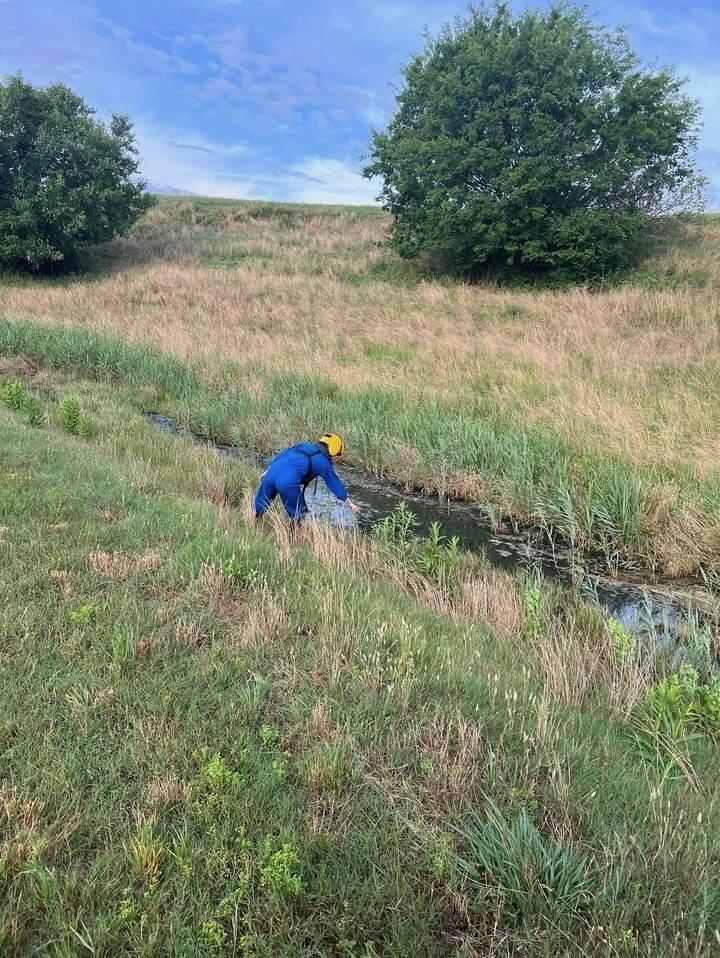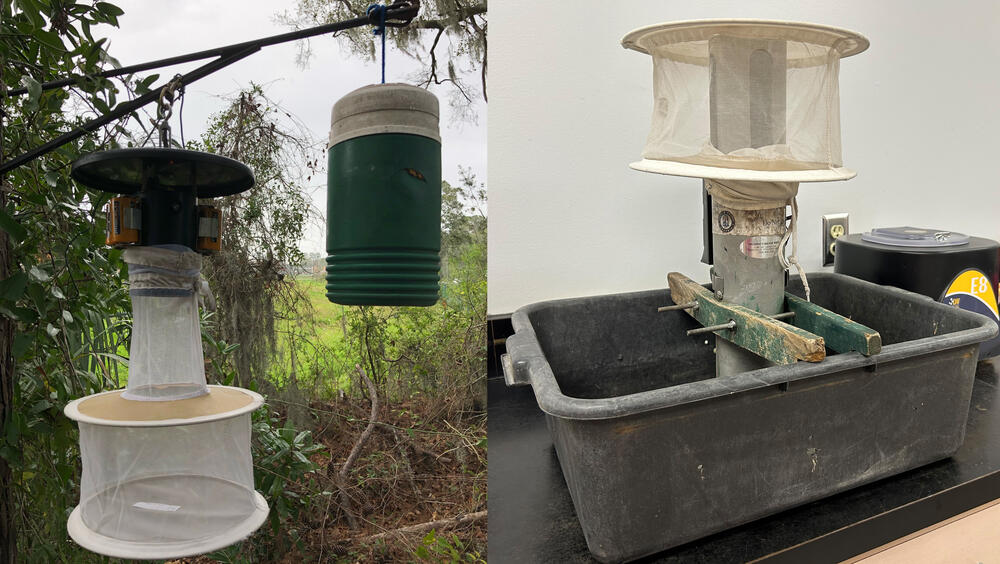
Caption
A worker with Chatham County Mosquito Control checks a ditch for mosquito larvae.
Credit: Ture Carlson/Chatham County Mosquito Control
West Nile Virus has been detected in mosquitos sampled from midtown Savannah, Hapeville and Northwest Atlanta.
The positive samples were pulled from traps set out by mosquito control, Fulton County and Chatham County public health departments reported this week. According to press releases from both counties, affected areas will be treated with insecticide.
These are the first detections of West Nile Virus in the state since the start of summer. Already, over a dozen states have reported cases of the virus.
In 2024, 218 mosquito samples tested positive for the virus in Chatham County, said Ture Carlson, director at Chatham County Mosquito Control.
“Last year, we were treating for some mosquitoes post the hurricanes in the area all the way till the Thursday before Christmas,” he said. “So just depending on temperatures really dictates how long the season is.”

A worker with Chatham County Mosquito Control checks a ditch for mosquito larvae.
There’s no cure or vaccine to treat West Nile Virus. If contracted, it can cause mild to moderate fever, headache, rash and gastrointestinal symptoms.
To prevent mosquito bites, people are advised to follow the five D’s -- avoid dusk and dawn, dress to avoid skin exposure, drain standing water in yards, keep doors closed, and wear insect repellent with DEET.
Carlson said mosquito control has been testing samples since March. When mosquito season ramps up in May, he said, they begin testing on “almost every mosquito that we think would transmit a disease.”
The primary genus of concern is commonly known as the “southern house mosquito.” The insect is a primary vector of West Nile Virus, transmitting the disease between bird populations.
“But we get into parts of the year where that mosquito will vary its diet a tad and will start to bite people, or maybe horses even,” Carlson said.
Mosquito control manages transmission in a few ways. As a part of surveillance, they’ll put out traps.

On the left, a mosquito trap involving a fan, a lightbulb and carbon dioxide, which attracts the insects. On the right, a trap that lures adult southern house mosquitos to lay eggs in a water basin, while a fan attachment at the top sucks them up to trap them for analysis.
“Every mosquito that gets stuck in a net, we put them underneath a microscope, and we look at them and we see ... if it's a possible disease vector,” said Carlson.
Those samples are tested for viruses in-house or sent to a lab at the University of Georgia.
During the summer months, prevention is key, too. That includes draining standing water from storm drains and catch basins underground to kill mosquito larvae before they can fly. Carlson said mosquito control also does aerial treatments in areas with high mosquito populations or where West Nile Virus has been detected.
At home, Carlson recommends getting rid of any standing water. Birdbaths, gutters and soggy flowerpots should all be considered possible breeding grounds for mosquitos. Even water that collects in vessels the size of a bottle cap can lead to a couple adult mosquitos in as little as a week.
“Getting rid of the water for the immature stages to develop is by far the best method,” Carlson said.